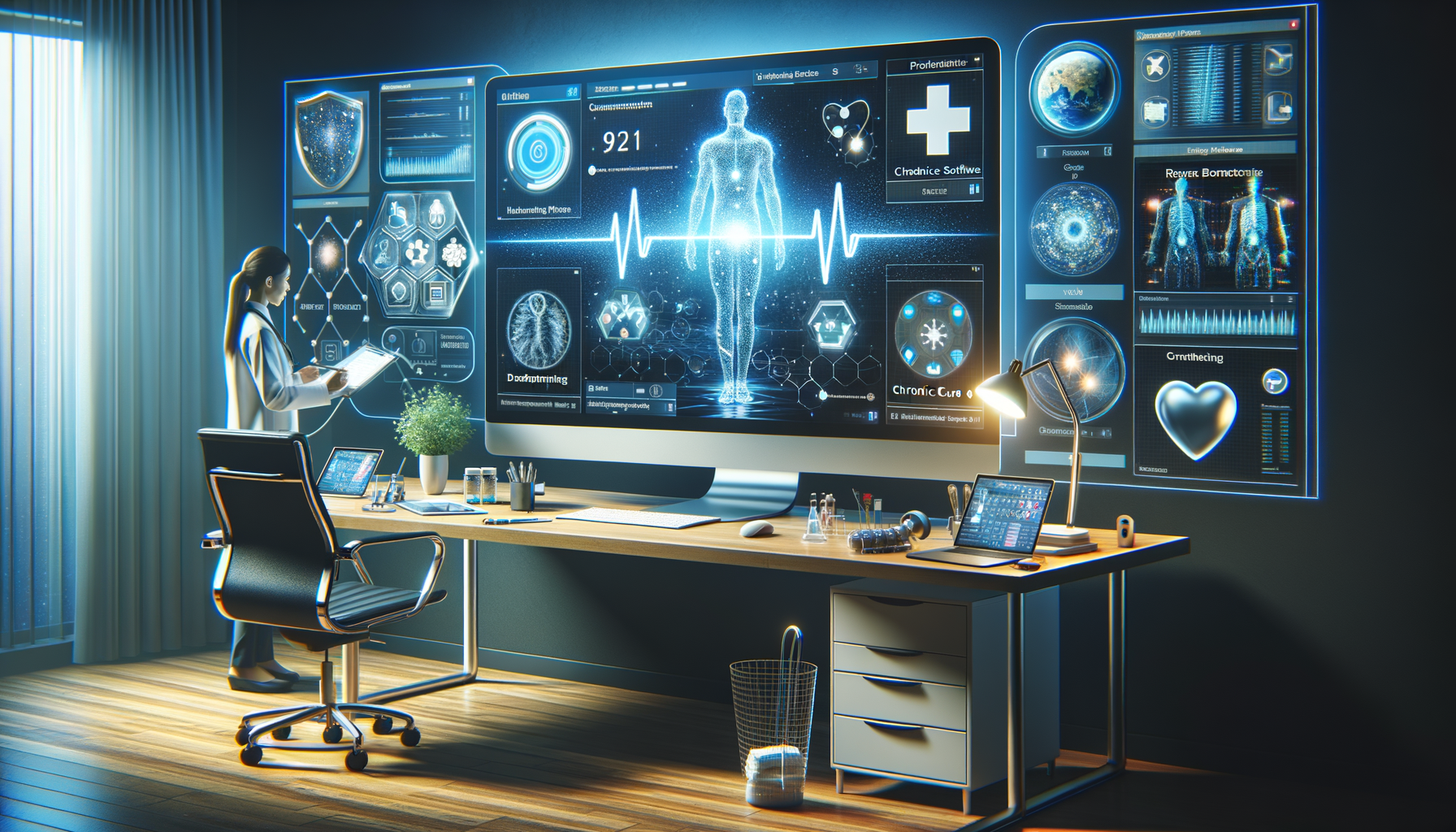Introduction to Healthcare Software
Healthcare software is revolutionizing the way chronic conditions are managed, offering unprecedented tools for both patients and healthcare providers. This software facilitates real-time remote monitoring, allowing for continuous observation of patient health metrics. By integrating with various devices, healthcare software provides automated alerts and secure data sharing, ensuring that healthcare providers can respond promptly to any changes in a patient’s condition. This capability is particularly crucial for chronic conditions such as diabetes and heart disease, where timely interventions can significantly impact patient outcomes.
The Role of Remote Monitoring in Chronic Care
Remote monitoring has become a cornerstone of chronic care management, enabled by advanced healthcare software. This technology allows patients to use wearable devices and home-based sensors to track vital signs and other health indicators. The data collected is transmitted in real-time to healthcare providers, who can monitor patient health without the need for frequent in-person visits. This approach not only reduces the burden on healthcare facilities but also empowers patients to take an active role in managing their health. By receiving automated alerts, providers can intervene early, potentially preventing complications and hospitalizations.
AI-Driven Insights for Personalized Treatment
Artificial intelligence (AI) is playing a pivotal role in transforming healthcare software, particularly in the realm of chronic care. AI algorithms analyze vast amounts of health data to identify patterns and predict potential health issues before they become critical. This capability enables healthcare providers to tailor treatment plans to the individual needs of each patient, optimizing outcomes. With AI-driven insights, physicians can adjust treatment plans on the fly, ensuring that patients receive the most effective care based on their current health status and historical data.
Integration with Healthcare Devices
The integration of healthcare software with medical devices is a game changer for chronic disease management. These integrations allow for seamless data collection and analysis, providing a comprehensive view of a patient’s health. Devices such as glucose monitors, blood pressure cuffs, and heart rate monitors can automatically sync with healthcare software, eliminating the need for manual data entry. This connectivity ensures accuracy and timeliness in data reporting, which is crucial for making informed healthcare decisions. Moreover, it enhances patient engagement by providing them with easy access to their health data and progress.
Improving Long-Term Outcomes with Healthcare Platforms
Healthcare platforms serve as digital care coordinators, bridging the gap between home and clinic. By leveraging healthcare software, these platforms facilitate continuous communication between patients and providers, ensuring that care is consistent and coordinated. This approach is especially beneficial for managing long-term conditions, where regular monitoring and adjustments to treatment plans are necessary. The use of healthcare software in these platforms can lead to improved long-term outcomes by reducing hospital visits, enhancing patient satisfaction, and ultimately improving quality of life for patients living with chronic conditions.




Leave a Reply